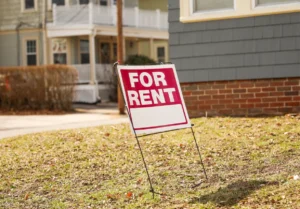
Top 5 Mistakes Even Advanced Landlords Make
This article was written by Joel Jones, Founder of Landlord Strategy
Taking the reins and managing your rental property can be incredibly rewarding. You save on management fees, have full control over decisions, and get to see the fruits of your hard work. But, let’s be honest—self-managing isn’t for everyone, especially when things get complicated. Even seasoned landlords can slip up and make costly mistakes. Here are five advanced pitfalls to watch out for when you’re self-managing your rental property, along with some practical advice on how to avoid them.
1. Overlooking Subtle Legal Traps
Regulations are always changing, and even if you’re well-versed in landlord-tenant law, it’s easy to miss a new rule or ordinance. It’s not just about knowing the basics; it’s about understanding the finer details that can impact your bottom line. For example, rent control laws can vary significantly from one city to another, and failing to comply could land you in hot water.
One slip-up with these rules, and you might find yourself facing hefty fines or a legal battle. For instance, something as simple as issuing the wrong type of eviction notice during a local eviction moratorium could result in significant legal trouble. To stay ahead, consider setting up alerts for regulatory updates in your area, subscribing to newsletters from local landlord associations, or, better yet, building a relationship with a local real estate attorney who can keep you informed of the latest developments. A proactive approach to legal compliance not only protects your investment but also helps you avoid unnecessary stress and potential lawsuits.
2. Not Using Data to Set the Right Rent
Setting the right rent is more than just covering your mortgage and making a profit. If you’re relying on gut feeling or basic comparisons, you might be leaving money on the table—or worse, pricing yourself out of the market. Advanced landlords are digging into data, using tools like Rentometer, Zillow, or CoStar to analyze everything from neighborhood trends to seasonal demand.
By tapping into this data, you can fine-tune your pricing strategy, minimize vacancies, and maximize your returns. It’s not about just getting someone in the door; it’s about getting the right tenant at the right price. Additionally, consider the timing of your listings. Research shows that the time of year can significantly impact demand. For example, listing a property in the summer months might attract more prospective tenants due to the higher number of people relocating during this period, while winter might require more competitive pricing or incentives to fill vacancies. Strategic pricing, informed by data, is crucial to maintaining a healthy bottom line.
3. Skipping Preventative Maintenance
Sure, you handle the basics—fixing a leaky faucet here, replacing a light bulb there. But are you thinking long-term? Preventative maintenance is more than just keeping things running; it’s about protecting your investment and keeping your tenants happy. Advanced landlords use property management software to track maintenance schedules, spot patterns, and even predict future issues.
Investing in things like energy-efficient appliances or smart home tech isn’t just a nice-to-have—it’s a way to cut down on costs in the long run and appeal to higher-quality tenants. It’s the difference between being reactive and being proactive, which can save you a lot of headaches (and money) down the line. For example, regularly servicing your HVAC system might seem like an unnecessary expense, but it can prevent more costly repairs down the road and extend the lifespan of your equipment. Moreover, well-maintained properties tend to attract and retain better tenants, reducing turnover rates and ensuring a stable rental income. This proactive approach not only preserves the property’s value but also enhances your reputation as a responsible and attentive landlord.
4. Not Having a Solid Risk Management Plan
Managing risk isn’t just about having insurance—it’s about being prepared for the unexpected. Think beyond the basics: Are you screening your tenants thoroughly? Are you diversifying your tenant base to protect against economic downturns? Have you considered setting up an LLC to protect your personal assets?
These are the kinds of questions advanced landlords ask themselves. By having a well-thought-out risk management plan, you can safeguard your investment from a wide range of potential threats. It’s all about being one step ahead. For example, consider the financial implications of tenant default. Proper screening processes, including credit checks, employment verification, and reference checks, can mitigate this risk significantly. But don’t stop there—diversify your tenant portfolio. If you own multiple properties, consider varying the types of units or locations to spread your risk. This way, an economic downturn in one market doesn’t disproportionately affect your entire portfolio. Lastly, explore the benefits of setting up an LLC or similar legal structure to shield your personal assets from liability. This added layer of protection can be invaluable if legal issues arise, offering you peace of mind and financial security.
5. Underestimating the Importance of Tenant Relationships
Good tenant relationships go far beyond handling maintenance requests or collecting rent on time. It’s about creating an experience that makes tenants want to stay. Advanced landlords know the value of a good CRM system—it helps track interactions, preferences, and even tenant anniversaries.
A little personal touch, like sending a birthday card or offering a small incentive for renewing the lease, can go a long way. Happy tenants are more likely to stay put, reducing turnover costs and keeping your cash flow steady. But it doesn’t stop there. Consider implementing a feedback loop where tenants can voice their concerns or suggestions. This not only helps you address issues before they escalate but also fosters a sense of community and belonging, which can be particularly attractive in competitive rental markets. Moreover, offering perks such as a yearly deep-cleaning service or discounts on rent for referrals can incentivize tenants to renew their leases, reducing vacancy periods and turnover-related expenses. Strong tenant relationships are the cornerstone of long-term success in property management, ensuring steady income and minimizing disruptions.
Conclusion
Self-managing your rental property is a rewarding but challenging endeavor. The key to success lies in the details—staying on top of legal changes, using data to make informed decisions, being proactive with maintenance, managing risk, and fostering strong tenant relationships. It’s a lot to juggle, but if you’re up for the challenge, the rewards can be well worth the effort.
Remember, you don’t have to go it alone. Surround yourself with the right tools, resources, and people, and you’ll be well on your way to becoming a successful self-managing landlord. And as your experience grows, so will your ability to navigate the complexities of property management, ensuring your investment remains profitable and secure for years to come.
Author:

Joel Jones, Founder of Landlord Strategy
Joel Jones brings over 5 years of self-management experience and has successfully managed 500+ rentals. Joel empowers landlords to confidently self-manage their properties, providing personalized training and proven systems to help them avoid costly mistakes













 Accessibility
Accessibility